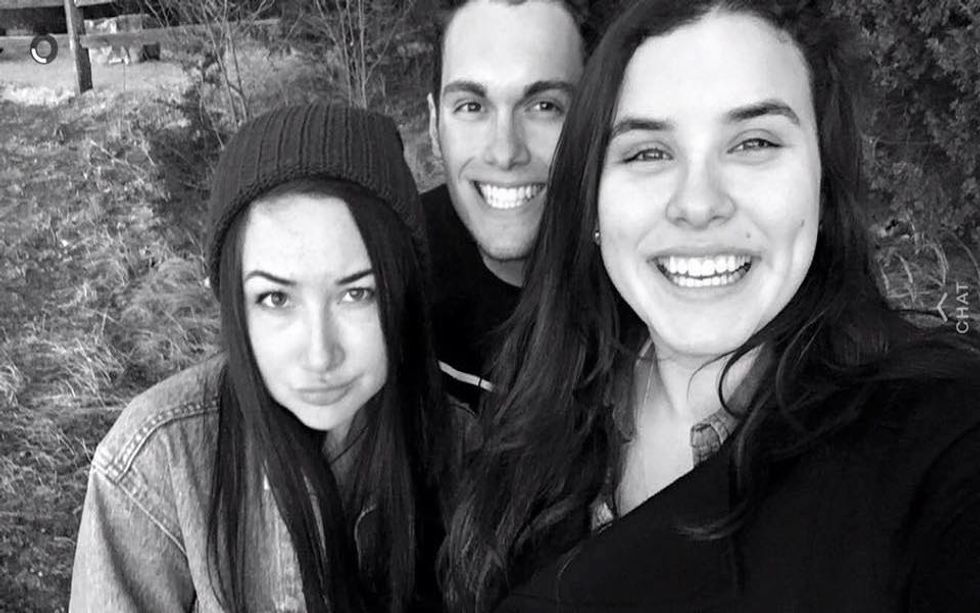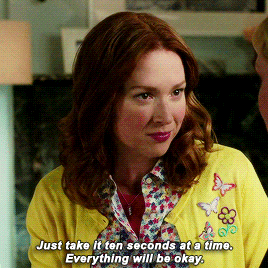My dad is Korean and my mom is Czech/Swedish, so that makes me, in official terms, "mixed race." Other versions of this term get thrown around, too, like "mixed baby," "halfie," "hybrid." In Hawaii, "hopahalli" describes those who get to check "two or more races" on survey forms. One of my personal favorites that I've been called recently is a "half-breed." Nice, right?
When I was little, I thought being mixed-race was the coolest factor that defined who I was, and little me would proudly stand up and announce that each time we had class introductions or shared fun facts at summer camp. Once I was about eight years old a friend of mine came up to me during class one day and stated, "You're like the special Asian of our friend group!" Not only did this statement confuse eight-year-old me, I found myself thinking, "I am one of you, because I too am white!" But am I really white? Am I really Asian? Where do I find myself on this race-to-race spectrum?
Race is one of the most defining sociodemographic characteristics of a person, so it makes sense that someone's identity can be molded based on what family they were born into. For a mixed race person, race becomes even more confusing; half of you is "something" and the other half is "another thing". But that can sound a bit problematic since that implies a mixed race person isn't completely one "thing" or another. So, the issue of belonging to a specific group arises and so does a sense of confusion. I remember being called the "white cousin" among my Korean cousins (it also didn't help that I never learned Korean — am I a bad Asian because of that?) and feeling slightly like an outsider even during family reunions. And then among my groups of white friends, I was always the "Asian one", which made me feel like I was further pushed to the fringes of the group. I was never "white enough" or "Asian enough" to be completely included.
Even when the initial sting of the first racial encounter wears off and some immunity is built over the years against such instances, an occasional comment or situation can still crack that shield. For instance, someone asserted the other day that I couldn't speak about Korean culture because I wasn't a "real Asian." Fair enough, if we're going to assume that "real people" can only be confined to one race. I would like to think that my race(s) doesn't dictate society's expectations of me, but that would be a very naive and wishful way of living in our current society, so the question then becomes what to do on a day to day basis. People's comments and actions still sometimes make me confused about my own identity and where I "belong," but I'm also still re-learning how to think like eight-year-old me and be proud of my uniqueness. Race sticks with you for life, so either you live each day regretting your own identity or embracing it for what it makes you. Slowly I'm realizing that as a mixed person, I might not even have to "belong" to one group or another — I just am.




 man running in forestPhoto by
man running in forestPhoto by 





 "I thought you knew what you signed up for."
"I thought you knew what you signed up for." man and woman in bathtub
Photo by
man and woman in bathtub
Photo by  four women sitting on black steel bench during daytime
Photo by
four women sitting on black steel bench during daytime
Photo by  Uber app ready to ride on a smartphone.
Photo by
Uber app ready to ride on a smartphone.
Photo by  woman in red tank top and blue denim shorts standing beside woman in black tank top
Photo by
woman in red tank top and blue denim shorts standing beside woman in black tank top
Photo by  blue marker on white printer paper
Photo by
blue marker on white printer paper
Photo by  welcome signage on focus photography
Photo by
welcome signage on focus photography
Photo by  woman in white and black striped long sleeve shirt lying on bed
Photo by
woman in white and black striped long sleeve shirt lying on bed
Photo by  pink pig coin bank on brown wooden table
Photo by
pink pig coin bank on brown wooden table
Photo by  person holding iPhone 6 turned on
Photo by
person holding iPhone 6 turned on
Photo by  person holding pencil near laptop computer
Photo by
person holding pencil near laptop computer
Photo by  person slicing vegetable
Photo by
person slicing vegetable
Photo by 
 woman covering mouth with sweater
Photo by
woman covering mouth with sweater
Photo by  person holding remote pointing at TV
Photo by
person holding remote pointing at TV
Photo by  a woman with her arms raised in a crowd of people
Photo by
a woman with her arms raised in a crowd of people
Photo by  "Shocked disbelief: '95% of the population is undateable?'"
"Shocked disbelief: '95% of the population is undateable?'"








